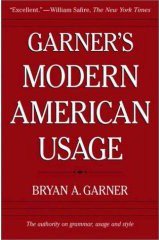Sentence problems 3--passive voice
Do you know what the passive voice is? Many lawyers do not. Many believe it is any verb that is not "strong," or any form of the verb "be," or any past-tense verb. It is none of those, though all might be labeled passive in a general sense.
The passive voice is a form of the verb "be" (be, am, is, are, was, were, being, been) and a past participle (usually a past-tense verb). If the verb works with "have," as in "have _____," then it is a past participle.
In the passive voice, the grammatical subject is not doing the action; the subject is being acted upon. So it is possible to leave the actor out of the sentence entirely. Thus, the passive voice presents two problems:
First, the normal reader expectation of [actor--action--thing acted upon], which fits the expected English order of subject, verb, object, is subverted. Instead, it becomes [thing acted upon--action--actor] or, because you can leave out the actor: [thing acted upon--action]. In other words, sentences can be direct and active, like this one:
- Active: I sent the letter.
- Passive: The letter was sent [by me].
- The motion was filed, a hearing was held, and a ruling was issued.
- The district attorney filed the motion, both lawyers attended a hearing, and the judge issued a ruling.
- The test might have been easier for students if it had been designed to measure their memories.
And by the way, this is probably a better sentence:
- The test might have been easier for students if the professor had designed it to measure their memories.
--Excerpted from Better Legal Writing


